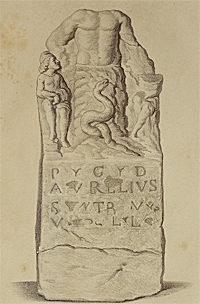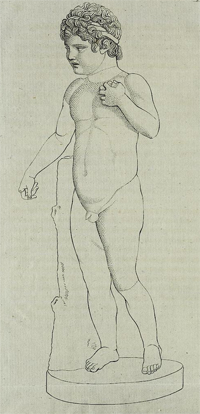[First posted in AWOL 15 October 2009. Most recently updated30 July 2015]
Aestimatio: Critical Reviews in the History of Science
Aestimatio: Critical Reviews in the History of Science
Aestimatio provides critical, timely assessments of books published in the history of what was called science from antiquity up to the early modern period in cultures ranging from Spain to India, and from Africa to northern Europe. The aim is to allow reviewers the opportunity to engage critically both the results of research in the history of science and how these results are obtained.
Volume 11 (current)
Paul T. Keyser Being, Humanity, and Understanding: Studies in Ancient and Modern Societies by G. E. R. Lloyd 1-12 Sonja Brentjes Routes and Realms: The Power of Place in the Early Islamic World by Zayde Antrim 13-21 Antoine Pietrobelli Hippocrates: On the Art of Medicine by Joel E. Mann 22-23 Jeffrey A. Oaks Abū Kāmil. Algèbre et analyse Diophantienne. Édition, traduction et commentaire by Roshdi Rashed 24-49 Arthur MacGregor Morbid Curiosities: Medical Museums in Nineteenth-Century Britain by Samuel J. M. M. Alberti 50-55 Robert Mayhew Aristotle: His Life and School by Carlo Natali, edited by D. S. Hutchinson 56-65 Heidi Marx-Wolf Cosmology and Fate in Gnosticism and Graeco-Roman Antiquity: Under Pitiless Skies by Nicola Denzey Lewis 66-70 Pietro B. Rossi De motu animalium. Fragmenta translationis anonymaeand De progressu animalium, De motu animalium. Translatio Guillelmi de Moerbeka by Pieter De Leemans 71-88 André Goddu Kepler’s Cosmological Synthesis: Astrology, Mechanism and the Soul by Patrick J. Boner 89-99 Steven A. Walton Artisan/Practitioners and the Rise of the New Sciences, 1400–1600 by Pamela O. Long 100-106 Nathaniel Wolloch Ethical Perspectives on Animals in the Renaissance and Early Modern Period by Cecilia Muratori and Burkhard Dohm 107-114 Stamatina Mastorakou Illustrating the Phaenomena: Celestial Cartography in Antiquity and the Middle Ages by Elly Dekker 115-120 J. L. Berggren The Principles of Arab Navigation by Anthony R. Constable and William Facey 121-126 Elizabeth A. Hamm Heavenly Mathematics: The Forgotten Art of Spherical Trigonometry by Glen Van Brummelen 127-130 Jonathan Barnes Aristotle’s Categories in the Byzantine, Arabic and Latin Traditions by Sten Ebbesen, John Marenbon, and Paul Thom 131-138















































